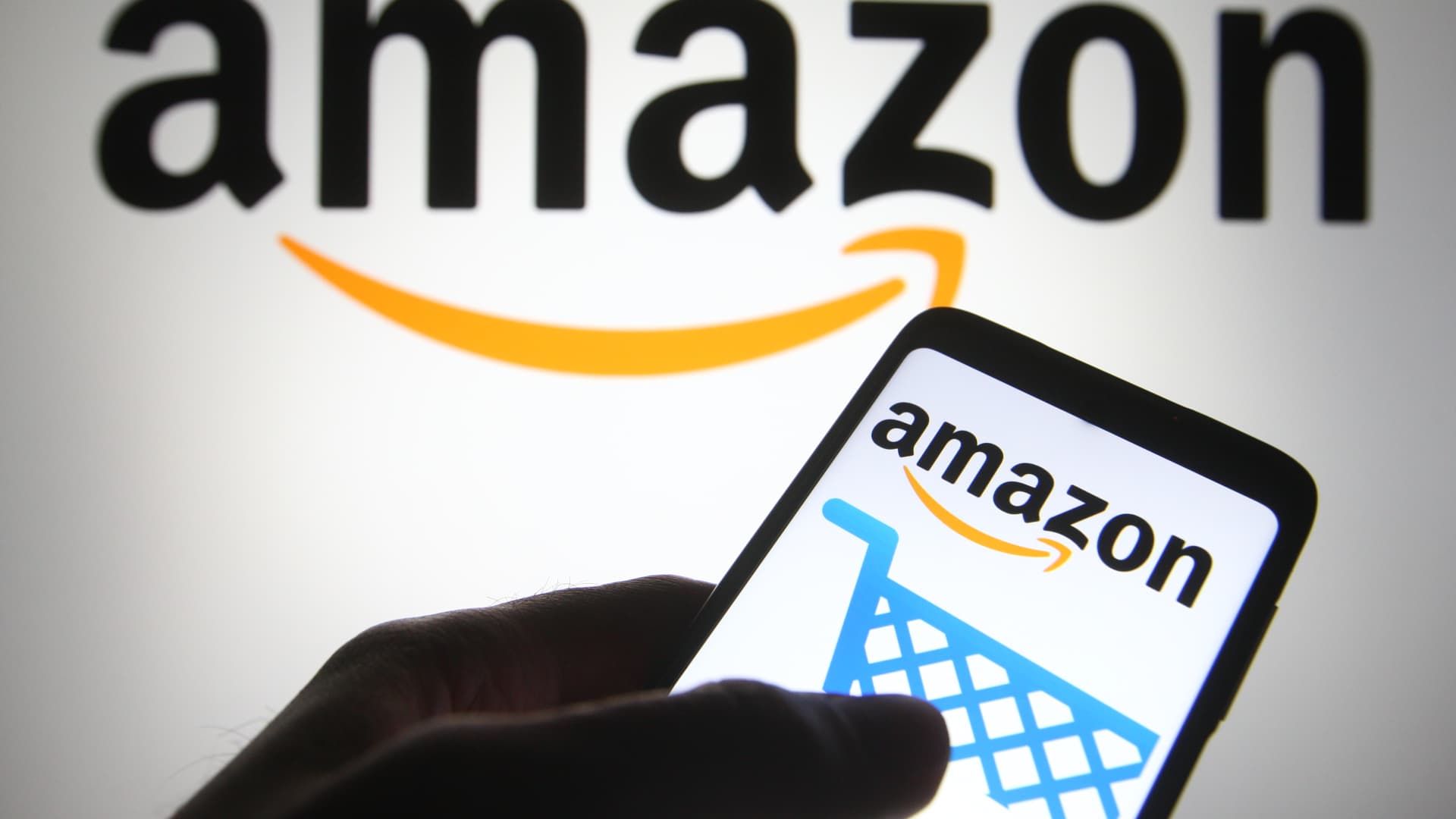The Amazon logo displayed on a smartphone and a PC screen.
Pavlo Gonchar | LightRocket via Getty Images
LONDON — Amazon will start selling home insurance in the U.K. through partnerships with three local insurers, further expanding the e-commerce titan’s push into financial services.
The company announced Wednesday it is opening a new service called Amazon Insurance Store.
The product will show shoppers quotes for policies from insurance providers including Ageas, Co-op and LV+ General Insurance, with Amazon pocketing a commission on each sale from its partners. It is similar to offerings from price comparison sites like Comparethemarket and Moneysupermarket.
Customers who want to apply for home insurance on Amazon can do so by filling out a questionnaire, which asks them questions on their home insurance needs. They’re then shown a list of quotes from Amazon’s insurance partners, along with reviews and star ratings from other customers. Once a user decides on which policy they want to go with, they pay for it using Amazon’s own online checkout. The service is initially rolling out to a few select customers but will be available across the U.K. by the end of 2022.
“Finding the right home insurance policy can be a time-consuming and confusing task, with quotes that often leave out essential coverage in order to lead with the lowest price,” said Jonathan Feifs, general manager of Amazon’s European Payment Products, in a press release Wednesday. “When we set out to create the Amazon Insurance Store, we wanted to improve the experience for customers shopping for home insurance so they could easily compare options and make an informed, objective decision—just like shopping on Amazon.”
Feifs added that the launch was “just the beginning,” suggesting Amazon may expand into other insurance categories over time. It’s the first time the company has launched a store selling insurance. Amazon’s earlier insurance products include product warranty and third-party seller insurance.
It marks the latest foray by Amazon into the world of finance. The company already offers lines of credit to merchants selling items on its platform. It also offers buy now, pay later loans — which allow shoppers to pay off purchases over monthly installments — in the U.S. through a partnership with fintech firm Affirm, and in the U.K. with banking giant Barclays. Last year, the company launched insurance for small and medium-sized business customers in the U.K.
Ben Wood, an analyst at research firm CCS Insight, said the move showed how Amazon is “reinvigorating its efforts to further diversify its business as we emerge from the pandemic and pressure grows on its traditional activities.”
The company “has a wealth of consumer data that it can use as it ventures into new areas,” Wood told CNBC, adding: “Whether this is relevant to this foray into home insurance is unclear, but the value can’t be underestimated as it expands its its business in the future.”
Amazon saw sales on its site boom after the 2020 Covid-19 outbreak, which drove shoppers online as they were restricted from being able to go outside. However, shares of the company have fallen over 30% this year, with higher interest rates hammering tech stocks and investor fears of softening e-commerce sales as the cost-of-living crisis dents sentiment. Add to that the fact that Amazon is heading into a bleak holiday shopping season — particularly in the U.K., where officials have warned of blackouts this winter due to disruption to gas supplies caused by the Russia-Ukraine war.
Earlier this year, Amazon increased the price of its Prime subscription service, which offers faster delivery times and TV and film streaming, to $139 from $119 in the U.S., highlighting the challenges posed by supply chain disruptions, labor constrains and high inflation. Prices for Prime in Europe saw even steeper climbs. Higher subscription costs helped boost Amazon’s revenues in the second quarter, which rose 7% to $121.2 billion. Amazon is due to release its third-quarter numbers later this month. In July, the company forecast third-quarter revenue growth of between 13% and 17%.
Amazon’s move into the insurance market comes amid increased hype over so-called insurance technology, or insurtech. Quite a few startups have scored sizable sums of cash from investors with the proposition that insurance is a market in severe need of digitization. Wefox, a German insurtech firm, recently raised $400 million in a round valuing the company at $4.5 billion, for example — 50% higher than its previous funding round, despite a grim fintech funding climate.
– CNBC’s Arjun Kharpal contributed to this report












